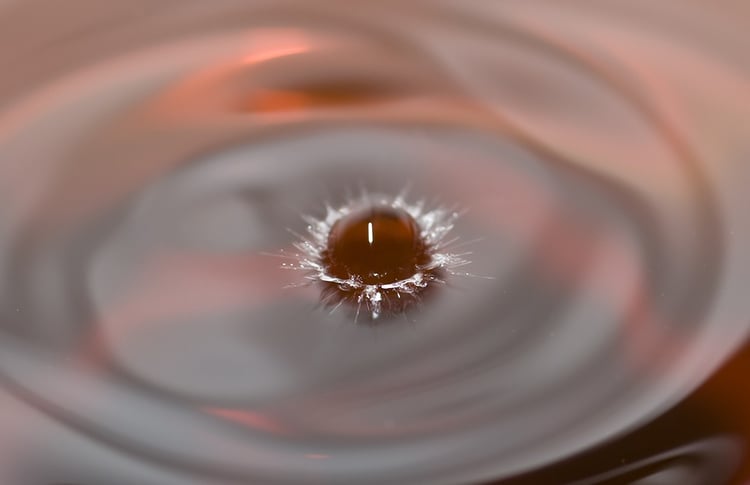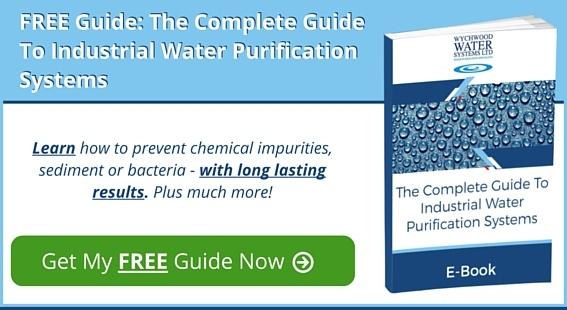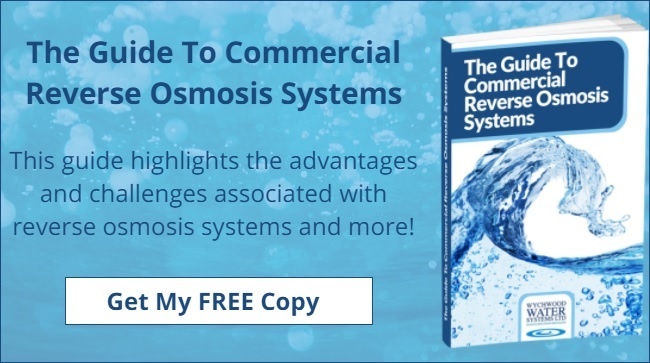
Reverse osmosis (RO) systems are being increasingly used by many industries with impressive results. Modern technology has made industrial RO systems capable of removing over 99% of certain contaminants. But how does reverse osmosis work?
The RO Process
Feed water at low pressure is passed through a semi-permeable membrane in a parallel direction. This crossflow creates turbulence which brings contaminants to the surface to be attracted to the membrane. Although the membrane traps contaminants, it allows water to pass through.
Industrial RO can trap many contaminants at the ion level. Mineral salt, ethanol, organics and more can all be removed using this process. Bacteria can also be removed using this treatment.
The elements used for RO membranes today allow for feed water to be passed through at high flow rates and lower operating pressure. This allows for nearly 100% pure water to be obtained, as well as significantly lowering the system’s energy demand.
Benefits Of Industrial RO
The use of industrial RO in your facility can yield many benefits.
Not only can it be used as a standalone system, but it can also work very well as a way to pre-treat feed water. When used as a pre-treatment, industrial RO allows the life expectancy of other downstream systems to be increased.
For example, when applied to boiler feeds in certain facilities, costly periods of downtime can be prevented, and efficiency can be maximised. Taking this a step further, when the water entering the RO system is itself pre-treated, the system can last for far longer.
Having an in-house RO system has many advantages, not the least of which is cost. With this kind of system installed, there is no need to incur additional costs by having treated water delivered. There is also no downtime in waiting for delivery to occur. Instead, a facility can continue with their operations uninterrupted and be assured of water availability at the desired level of quality.
Modern RO systems can also be pre-programmed to flush the system automatically. This allows the system to remain cleaner for longer periods, which may reduce the need for membrane cleaning or replacement. However, this should not be considered a common way of cleaning membranes.
Optimising Performance And Longevity
Pre-treatment is a definite consideration when having an industrial RO system in place. This is the best way to ensure long system life and optimal performance, as well as minimise operating costs. Another important thing to consider is effective management; a consistent approach must be taken where the operation of the system and its maintenance is concerned.
For example, the membranes of the system will need to be cleaned even if automatic system flushing is possible. This is because build-up of scale is inevitable. How frequently the system will need to be cleaned depends on many factors, including type of pre-treatment and quality of feed water.
A number of process factors will need to be monitored in order to come upon the right frequency of membrane cleaning and system disinfection. These include flow rates for concentrate and permeate. Knowing these figures will allow for the percent recovery rate to be calculated, which will ensure that membranes do not become prematurely fouled or scaled.
Another aspect of maintenance will be to take regular conductivity readings, which will determine the amount of salt rejection occurring across the membranes. A percentage of between 95 and 98 percent is typical with industrial RO systems.
Because pipes, valves, pumps and their components also need to be in good health to ensure continued water purity, these will also need to be a part of regular and preventive maintenance.
When the importance of regular maintenance is understood, there is no reason that industrial RO can’t have a plethora of benefits for your facility.
Get More Information About RO For Your Facility – Free!
Reverse osmosis is one of many ways facilities treat their water. If you want to consider your other options for water treatment, or simply want more information about industrial RO, our free guide can help. The Guide to Industrial Water Purification Systems can provide you with everything you need to make an informed decision about water treatment for your facility. Simply click here to claim your copy.
If you have additional questions about the water quality at your facility, we encourage you to get in touch with one of our knowledgeable team members via email on sales@wychwood-water.com.









 We are a specialist independent company involved in water purification and water treatment technologies
We are a specialist independent company involved in water purification and water treatment technologies


